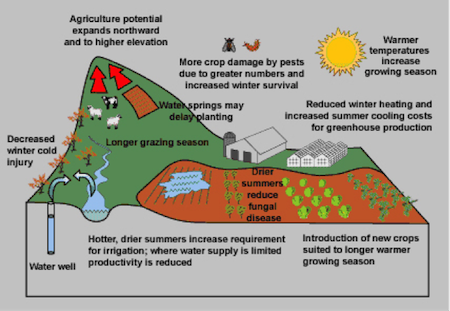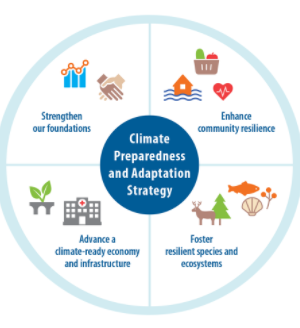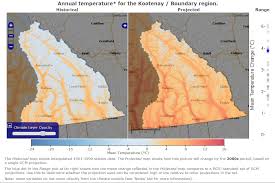Adapting to climate change
Adapting to changes in the weather has always been a part of farming life. With climate change, patterns of “normal” weather are shifting, with increased frequency and severity of extreme weather events.
Anticipated changes
Climate change will have significant challenges for agricultural producers in B.C. due to changes in production patterns, increases in crop damage, water shortages, and changes in the interactions between crops, weeds and insects.
On the coast, a longer and warmer growing season could permit higher yields and more diverse crops in the Fraser Valley and on southern Vancouver Island. However, warmer and wetter winters and springs could increase the risk of extreme precipitation, floods, pests, and delayed planting/harvesting.
In the interior, regions suitable for vineyards, orchards, and annual crops could extend north and the grazing season for livestock could be longer, but there may be increased drought and wildfires during the summer and fall.
Source: Natural Resources Canada
Resources for agricultural adaptation
Successful adaptation will be necessary for the agriculture industry to thrive. The B.C. government and the agriculture industry are working in partnership through the Climate Change Adaptation Program B.C. to build the sector’s resilience to climate change.
The Province has developed a strategy to help B.C. prepare for climate change.
Learn about future agricultural growing conditions in your region with Plan2Adapt maps showing changes in Growing Degree Days, temperature and precipitation for the 2020s, 2050s, and 2080s.



